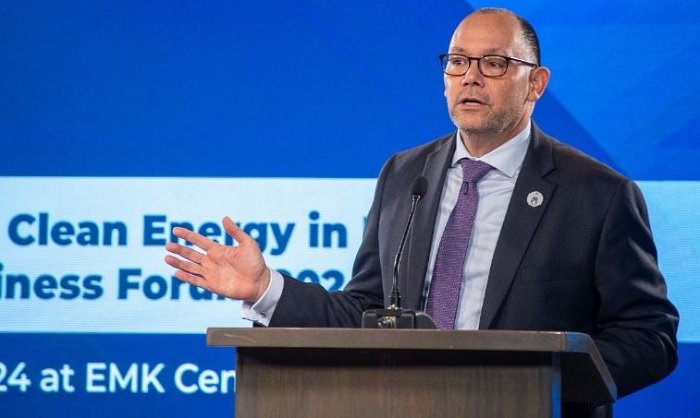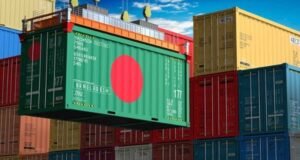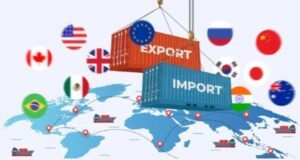
Empowering Bangladesh with clean energy today means a brighter, sustainable future for generations to come, US Ambassador to Bangladesh Peter Haas has said.
He said it while addressing the Indo-Pacific Business Forum (IPBF) at the EMK Center in Dhaka on Tuesday.
The forum is the premier public-private U.S. government event to promote trade, investment, and economic cooperation between the United States and its partners throughout the Indo-Pacific region.
This year’s event will convene 500 leaders from across the region, including through a live stream for virtual participation and satellite events in Bangladesh and Sri Lanka, according to a press release.
The one-day event in Manila, Philippines, is co-hosted by the U.S. Trade and Development Agency and the government of the Republic of the Philippines, in partnership with the U.S. Department of State.
IPBF connects CEOs, project developers, government officials, and sources of financing for priority infrastructure in emerging Indo-Pacific economies.
Through speeches, breakout panels, and business matchmaking, participants will learn and share their insights on the latest trends, opportunities, and solutions to support infrastructure across all sectors.
The key themes and topics for 2024 are: clean energy, digital transformation, supply chain resiliency, transportation infrastructure, and emerging technologies.
Noting that the world’s fossil fuel supply is finite, the US Ambassador said fossil fuels may be in short supply in the coming years. “This underscores the urgency to advance a sustainable, equitable, and just energy transition to clean and renewable energy resources,”
Citing that Russia’s invasion of Ukraine in 2022 shocked the energy market in Bangladesh, like in many parts of the world, he said countries became acutely aware of their dependencies on foreign sources of fuel. “The impact of that act of aggression sheds light on the interconnectedness of the global energy supply.”
He said all nations, therefore, must develop a plan to solidify their energy security based on a diversified portfolio of resources.
Mentioning that Bangladesh is fortunate with its domestic supply of natural gas, Haas said, “I’m proud to say that U.S. businesses have been instrumental in allowing Bangladesh to utilize those resources to drive its remarkable economic development over the last two decades. But, as I mentioned before, those supplies are not infinite. And while Bangladesh may soon find more gas in new locations, eventually those too will run out.”
He said renewable and clean energy resources are the key to this energy transition for Bangladesh, for South Asia, and for the world.
Finding ways to harness solar, wind, hydro, hydrogen, and other energy sources is the path to energy security and needed to support continued economic growth and sustainable development, he added.
To help Bangladesh reach this goal, the US Ambassador said his government has been working with the Bangladeshi government, the private sector, international financial institutions, and like-minded governments to build the foundation for this country’s clean energy transition.
Haas also highlighted some challenges in the coming days that include seamlessly integrating intermittent energy resources into national grids, which are already struggling to keep up with demand; developing abundant supplies of cleaner fuel sources, such as green hydrogen; ensuring that countries have access to finance for clean and renewable energy technologies; and negotiating regional energy trading agreements where politics may trump economic advancement.
For Bangladesh to achieve a just energy transition, Haas said it will take contributions from the government, private sector, and civil society.
“It will require good policies in place to incentivize smart investments and cross-border electricity trade, the privatization of under-performing state-owned assets, the adoption of new technologies, and the phasing out of the most damaging fossil fuel power generation facilities,” he added.
The US Ambassador also said, “This will not happen overnight. It will take years to accomplish. But we can accomplish it faster if we work together and share our collective knowledge.”
 Weekly Bangla Mirror | Bangla Mirror, Bangladeshi news in UK, bangla mirror news
Weekly Bangla Mirror | Bangla Mirror, Bangladeshi news in UK, bangla mirror news







